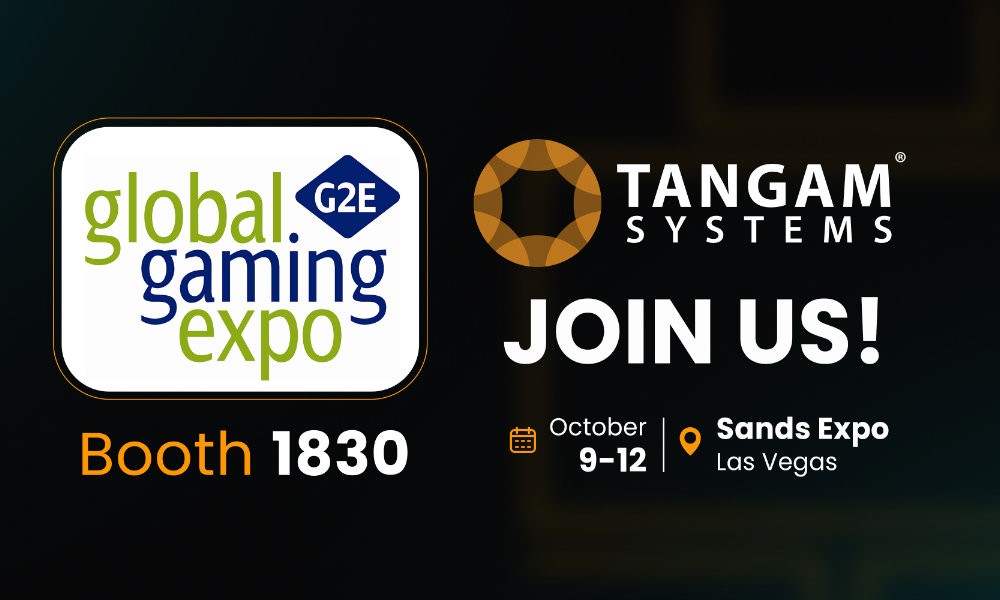Over the last year, artificial intelligence has become one of the most discussed topics in the gaming industry. But for Tangam Systems, AI has been an integral part of its technology since the company launched two decades ago.
“What we recognized at the time was the untapped potential of AI, especially in gaming,” says Tangam Systems President Maulin Gandhi. “We basically used AI and machine learning to analyze video-surveillance data from table games.”
Table-game conditions, notably excellent and controlled lighting, enabled Tangam to track everything that happened at tables, including dealer actions and player strategy. The data was collected and used to inform casinos how to reward players more accurately and help increase dealer productivity.
“That laid the foundation for where we’re at today,” Gandhi says. “At the time, it was more about using AI and machine learning automatically, because you need to train software to recognize what’s happening on a gaming table, then use that to help casinos make sense of all this data to reward players.”
Today, after 20 years of experience serving the gaming industry, Tangam is leveraging its expertise to provide cutting-edge information and analyses. The Ontario, Canada-based company will feature its new AI Insights Engine in SODA (Slot Optimization & Data Analytics) at Global Gaming Expo, Booth 1830, Oct. 9-12, in Las Vegas.
Tangam’s use of AI and machine learning has become more sophisticated. While the underlying technology is important, operators are most interested in results. Gandhi says that clients, when provided with a “firehose” of data, will usually ask how it can be used. “When we help operators transition to being more data driven, it’s not just about giving them a lot more data. It’s about giving them answers and recommendations of what they can do with the data.”
Those recommendations transcend suggestions to increase table-game limits on a weekend night or where to place slot machines on gaming floors. Gandhi says the biggest challenge has been “operationalizing our software” and making sure clients understand processes and why things are done.
“We recognize that if they don’t adopt the software, the software becomes something that just sits on the shelf,” he says. “We need to make sure they understand why they’re doing what they’re doing and in order to do that, we had to onboard individuals who come from different operations, who work closely with their clients, to make sure that they fully buy into the idea that the data is not going to replace decision making, it’s there to help them in the decision-making process. It’s using technology to bridge that gap between the data, analytics, technology, and real-world operations to get their buy-in. And once we get that, the adoption of technology becomes a lot more seamless than just hoping everyone uses it.”
Tangam’s SODA technology gives operators precise insights about slot floors. Gandhi notes that the wealth of information that’s retrieved from slot machines far outpaces data available from table games, but that’s both good and bad. It’s great to have more information, but in a way harder, because there’s so much of it.
“Then it becomes, how we bridge that gap in terms of taking that data and parsing it, and we’re filtering out all the noise to the signal in terms of what decision the operator needs to make based on all the constraints,” Gandhi says.
Table games are inherently simpler. “We’re not going to tell you to rip your floor apart and make the changes you need to make,” he notes. “It’s how we make sure the changes we’re suggesting are within the constraints and the realm of your business.”
The advantage of AI is that it can sift through enormous amounts of data and pinpoint problem areas. Gandhi compares the process to what happens when a car’s check-engine light comes on. Auto mechanics can find different problems that are signaled by the light, resulting in varying outcomes (and wildly ranging bills for service).
“The risk is you end up addressing the wrong problem,” he says. “What we try to do is to flip it entirely. We want to provide a single unified answer derived from a full comprehensive analysis of all the data we have on the slot side. And that’s what the software’s artificial intelligence is, the ability to comprehend all the data on a fundamental level and layer in all the insights to address any performance gaps.”


